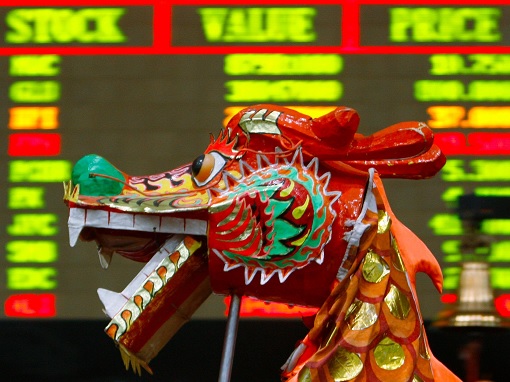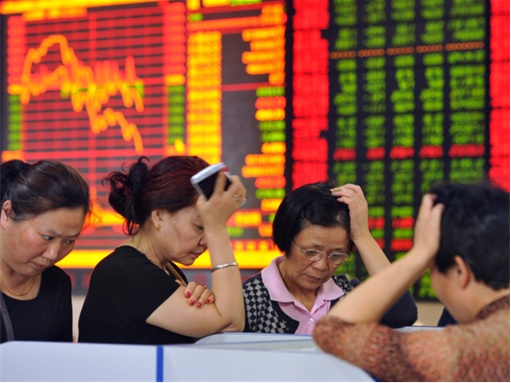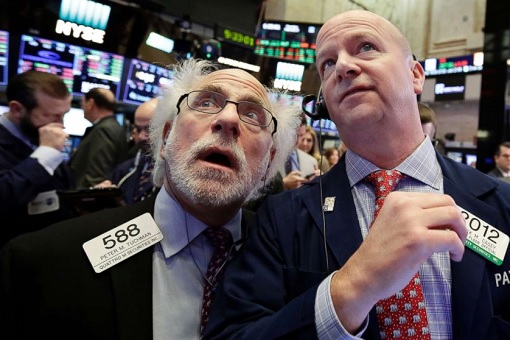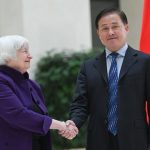By the end of the trading session on Monday, the Dow Jones Industrial Average (DJIA) had travelled more than 900 points. The Dow fell 245.39 points to 24,442.92, erasing a 352-point gain. The NASDAQ Composite Index plunges to its lowest since April. It was so bad that Amazon.com Inc. founder – Jeff Bezos – lost a staggering US$8.2 billion on Monday alone.
Among the world’s 500 richest people, Bezos took the biggest hit. In comparison, Microsoft Corp. co-founder Bill Gates lost only US$558.3 million. Essentially, over the past two trading days, the Amazon.com Inc. founder lost a mind-boggling US$19.2 billion – the most ever, according to the Bloomberg Billionaires Index. That broke Facebook’s Mark Zuckerberg record of US$16.5 billion lost in July.
Amazon dropped 13.7% in two days, marking its worst two-day tumble since February 2014. The stock market might blame it on Amazon’s third-quarter revenue last week that trailed analysts’ estimates and also provided a fourth-quarter outlook that was below expectations. But the investors and punters have someone else to blame too for the wild swing on the Wall Street.

According to Bloomberg, the U.S. is planning on slapping tariffs on more Chinese products if upcoming talks next month between President Donald Trump and Chinese President Xi Jinping fail to ease the present trade war. If the new tariffs are unleashed, it would mean the effective date – after 60 days period of the announcement – may coincide with China’s Lunar New Year holiday in early February.
The new tariffs to be applied on the imports from China would impact US$257 billion of Chinese products. According to sources, U.S. officials are preparing for such a scenario in case a planned Trump-Xi meeting yields no progress at a Group of 20 summit in Buenos Aires in November. In essence, it will become a full-blown trade war if Trump decides to push the button in early December.
After a month of sell-off as a result of the trade war between Washington and Beijing, more than US$8 trillion has been wiped off of global equities. So far this year alone, the U.S. has already imposed tariffs on US$250 billion in trade with China. The 10% tariffs on US$200 billion in imports that took effect in September are due to increase to 25% on January 1, 2019.

Emboldened by bloodbath in the China’s stock market due to the trade war, President Trump is not expected to hold back in hurting the Chinese more. In fact, China is facing its “worst financial situation” in 17 years, giving Trump administration major leverage in the ongoing trade war. Hedge fund manager Kyle Bass said – “We are in our strongest negotiating position we’ve ever had against China.”
However, using the relative performance of the U.S. and China stock markets as the only barometer to say America would emerge the victor in its trade war with the Chinese is quite ignorant. The fact that Trump, used to cheer the rise of U.S. stock markets at every turn during his first year in office, but no longer pulls such stunt now speaks volumes that the game isn’t that simple.
When the Dow plunged 600 points about 5 days ago, it wiped out the gains for the year for the blue-chip average and the broad Standard & Poor’s 500 index. The sharp, swift decline was sparked by fears that the U.S. economy and corporate earnings will start to slow due to trade disputes, more interest rate increases from the Federal Reserve and slowing growth in China.

Yes, even when the Chinese markets falls, it has repercussions for the US market. Stocks of companies that produce commodities and materials such as U.S.-based Caterpillar and DuPont were down 84% of the time when China shares fall hard. The poor performing China stock market will also affect basic commodities such as oil and copper.
The funny thing is while Trump has started the trade war under the pretext of cutting the huge trade deficit with China, the conflict never succeeded in fixing the problem. In fact, China’s trade surplus with the United States widened to a record in August, hitting a surplus of US$31.05 billion in that month, up from US$28.09 billion in July.
Over the first 8 months of the year, China’s surplus with its largest export market has risen nearly 15%, adding to tensions in the trade relationship between the world’s two largest economies. That was because of weakening China Yuan against the dollar, allowing Chinese exporters hit by U.S. tariffs to absorb the additional cost into their US dollar pricing, without any negative impact on their Yuan earnings.

Now, Trump has to struggle with an unknown – a stock market that is slipping, partly due to his own policies. While gross domestic product has improved, investors appear disappointed with the prospects for earnings growth, not to mention interest rate hikes from a Federal Reserve chairman the president appointed himself. The good news is – Trump’s approval rating has not been hurt ahead of the critical Nov. 6 midterm elections.
But the game isn’t over until the fat lady sings. There was also speculation that the markets decline due to fears about Democrats winning the House. However, Trump has started throwing tantrums, complaining that he was “very unhappy with the Fed Chair Jerome Powell because Obama had zero interest rates.” So, the president also wants zero rates otherwise it won’t be fair to him.
Other Articles That May Interest You …
- Dow Crashes 832!! – “Geopolitical Recession” Is Here & U.S. World Order Is Ending Under Trump
- This Photo Shows How A China Warship & A US Destroyer Almost Collided – And Sparks A War
- Trump’s Trade War & Potential More Sanctions are Pushing China Closer To Russia
- China’s Latest Strategy Against Trump’s Trade War May Be Based On Sun Tzu’s Art Of War – Stays Quiet!!
- Trade War – After $50 Billion, Trump Gets Impatient And Ready To “Sailang” $505 Billion With China
- Get Ready For 4 Rate Hikes This Year – New Fed Boss Powell Ain’t Afraid Of Stock Crash
- Stocks Crash!!! Lost 1,175 Points – Computers Help Wiped $1 Trillion In 3 Days
- China Reveals Strategy To Fight U.S. Trade War – Stop Buying American Debt

|
|
October 30th, 2018 by financetwitter
|


|

|

|

|

|

|




























Comments
Add your comment now.
Leave a Reply